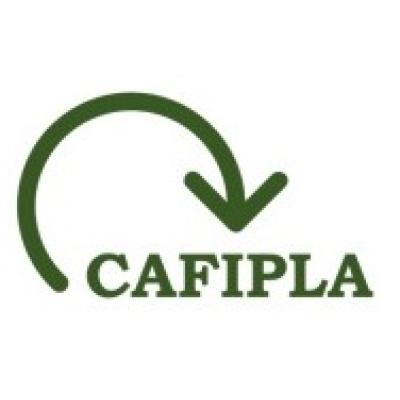A groundbreaking method applicable to different types of organic waste
'The CAFIPLA biomass loop is a great step forward for the efficient treatment and material upcycling of heterogeneous municipal organic waste beyond biogas and compost,' explains Marie-Aline Pierrard, project manager at IDELUX Environnement, the Belgian public waste treatment facility operating the pilot programme.
CAFIPLA links two innovative platform approaches, the Carboxylic Acid Platform (CAP) and the Fibre Recovery Platform (FRP), to create the CAFIPLA biomass loop.
The CAFIPLA results would be ideally implemented at an existing AD Facility as in this case the biomass logistic is already implemented and the basic knowledge required for operating the platform approaches exists.
Thomas Dietrich, CAFIPLA project coordinator
The CAP converts the easily degradable fraction of organic waste into short-chain carboxylic acids (SCCA) which can be used as precursors for the biotechnological production of PHBV biopolymer, microbial protein as well as transformed into medium-chain carboxylic acids (MCCA), such as caproic acid, via chain elongation. The fibres can be recovered from the remaining fraction and have huge application potential in bio-composites or in the construction sector.
Towards a contemporary integrated biorefinery
'The most innovative aspect of CAFIPLA is that it allows the transformation of heterogeneous organic waste streams into precursors for the bioeconomy,' stresses project coordinator Thomas Dietrich, researcher at TECNALIA.
The combination of the two platform approaches significantly improves biomass pre-treatment. Moreover, the CAP relies on dark fermentation which can be easily integrated into existing organic waste treatment facilities, such as anaerobic digestion and composting and lead to efficient material upcycling as required by a circular bioeconomy.
'The CAFIPLA results would be ideally implemented at an existing AD Facility as in this case the biomass logistic is already implemented and the basic knowledge required for operating the platform approaches exists,' concludes Dietrich. 'The next steps foreseen are to further upscale the two platforms to TRL 7 and to provide bigger amounts of intermediates, such as SCCA and fibres, to interested industrial stakeholders for application development thereby increasing the market demand for our precursors for the bioeconomy.'
The next steps foreseen are to further upscale the two platforms to TRL 7 and to provide bigger amounts of intermediates, such as SCCA and fibres, to interested industrial stakeholders for application development thereby increasing the market demand for our precursors for the bioeconomy.
Thomas Dietrich, CAFIPLA project coordinator
The project’s implementation guideline provides valuable insights into the CAFIPLA technology, bringing attention to the key factors of novel organic waste valorisation on a regional level. The team is currently focusing on the dissemination of non-confidential results and the interaction with stakeholders to exchange knowledge and develop business models regarding the economic opportunities upon implementation of the CAFIPLA pre-treatment strategy.
